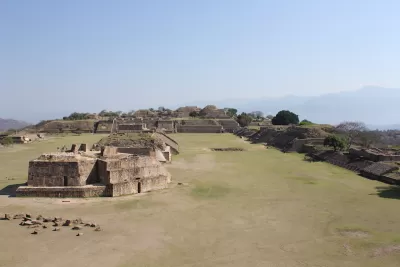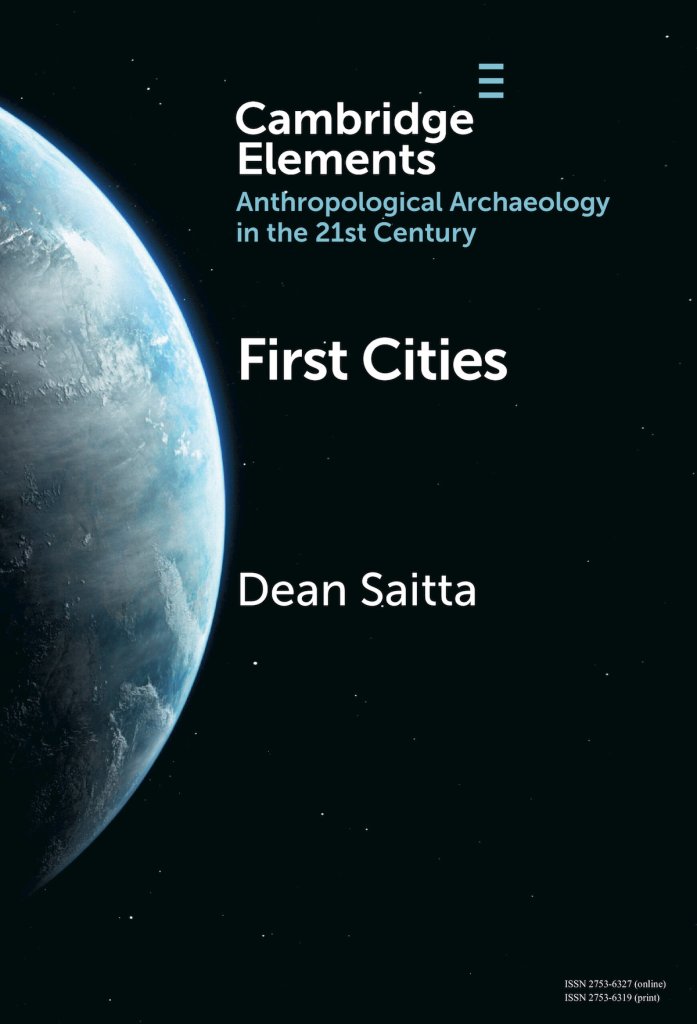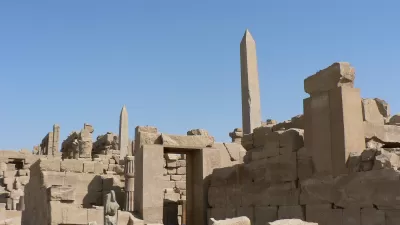A new book about urban planning in the deep human past explores principles, strategies, and lessons relevant for today.

During my nearly 12 years of posting essays for Planetizen I’ve tried to persuade readers that knowledge of cities in the deep human past has something to offer contemporary urban planners. My new book from Cambridge University Press brings together some of the insights and lessons that I find particularly compelling. The book is called First Cities: Planning Lessons for the 21st Century. It is available for free download until April 17, 2024. After that date it goes behind a paywall. A print version is also available.

The book is inspired by the vast literature in urban studies arguing that we need more and better knowledge of cities in history in order to deal with contemporary challenges around food security, service provision, health, housing, ethnic coexistence, governance, and sustainability. The need is critical given the effects on cities of pandemics and climate change, and the desire for more equitable cities spurred by insurgent movements for social justice. Practicing professionals—urban planners, designers, architects, and policymakers—are searching widely for new theories, models, and data that can inform contemporary practice. My book describes and synthesizes archaeological knowledge of humankind’s first cities for the purpose of expanding this body of source material. I examine archeological evidence from ancient Mesopotamia, Europe, Asia, Africa, and the Americas. The case studies cover more than 9,000 years of city building in the well-known heartlands of urban development as well as in lesser-known areas of the globe. I discuss the relevance of this knowledge for addressing the challenges mentioned above.
As you might expect, the ancient urban past offers no quick fixes for the problems that bedevil us today. The demographic size and spatial scale of ancient cities were different, as were the political economies that shaped their development. But archaeological knowledge can be used in the same way that any other body of knowledge about city planning can be used: to illuminate planning failures and successes, enrich debates about sustainable urban and architectural form, and inspire new imaginaries of what the city can be. I see great potential for learning from the deep past if we stay focused on general principles and strategies of city-building, work comparatively across multiple cases, and act on modest spatial scales via Richard Sennett's ‘seed planning’ or what Jaime Lerner described as ‘urban acupuncture’.
Ancient urban planners experimented with principles and strategies that presaged most of what exists in all contemporary urbanisms, including those described as ‘Green’, 'Regenerative', 'Smart', ‘Sustainable’ or, especially, ‘New’ urbanism. There are likely many more principles and strategies to be discovered as archaeological methods for investigating ancient cities improve and spatial data accumulates. The goal should be to identify ideas that can be ‘scaled-up’ to meet the various challenges of contemporary urban life. We also need to more widely share such knowledge across academic disciplines and the urban policy, planning, and placemaking professions. I hope that my book makes at least a small contribution to those efforts.

Maui's Vacation Rental Debate Turns Ugly
Verbal attacks, misinformation campaigns and fistfights plague a high-stakes debate to convert thousands of vacation rentals into long-term housing.

Planetizen Federal Action Tracker
A weekly monitor of how Trump’s orders and actions are impacting planners and planning in America.

Chicago’s Ghost Rails
Just beneath the surface of the modern city lie the remnants of its expansive early 20th-century streetcar system.

Bend, Oregon Zoning Reforms Prioritize Small-Scale Housing
The city altered its zoning code to allow multi-family housing and eliminated parking mandates citywide.

Amtrak Cutting Jobs, Funding to High-Speed Rail
The agency plans to cut 10 percent of its workforce and has confirmed it will not fund new high-speed rail projects.

LA Denies Basic Services to Unhoused Residents
The city has repeatedly failed to respond to requests for trash pickup at encampment sites, and eliminated a program that provided mobile showers and toilets.
Urban Design for Planners 1: Software Tools
This six-course series explores essential urban design concepts using open source software and equips planners with the tools they need to participate fully in the urban design process.
Planning for Universal Design
Learn the tools for implementing Universal Design in planning regulations.
planning NEXT
Appalachian Highlands Housing Partners
Mpact (founded as Rail~Volution)
City of Camden Redevelopment Agency
City of Astoria
City of Portland
City of Laramie





























